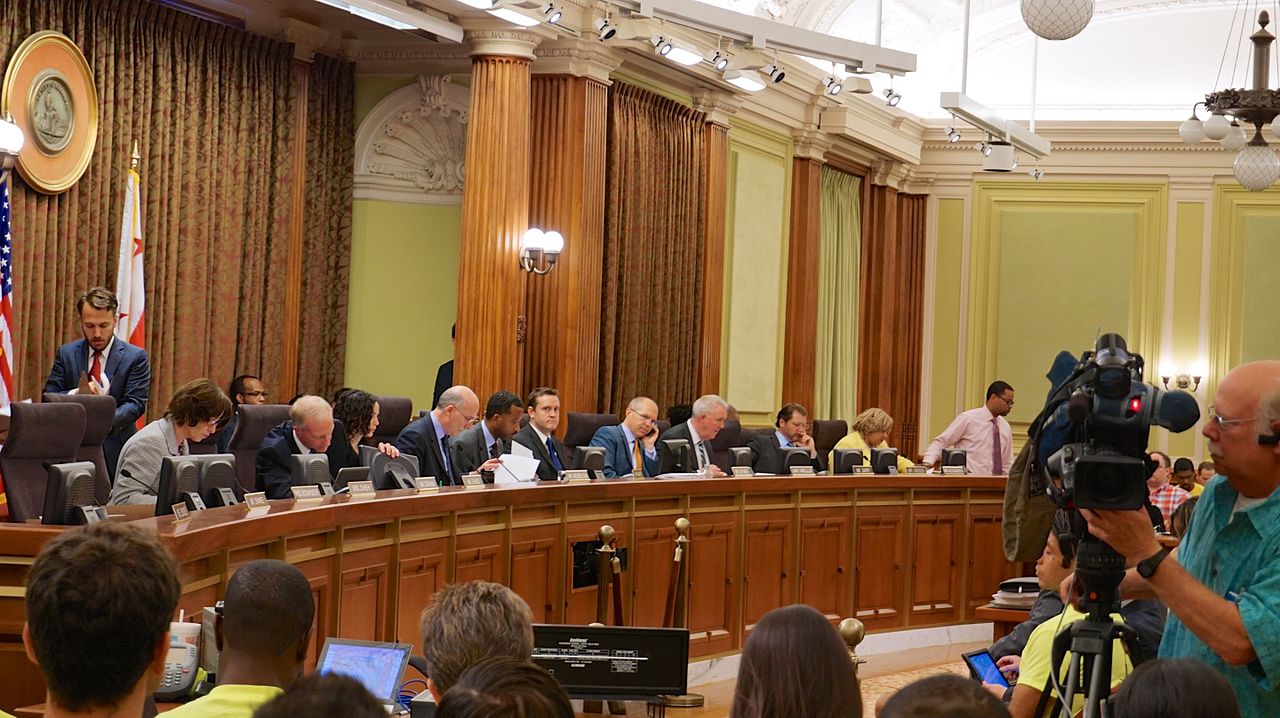Views expressed in opinion columns are the author’s own.
Last month, Washington, D.C., voters passed Initiative 77, a measure to raise the minimum wage for tipped employees. The initiative raises minimum wage for those employees to $15 an hour by 2025 — as opposed to the previous tipped minimum wage target of just $5 by 2020. Under current law, employers must make up the difference if an employee’s base wage plus tips does not reach the standard minimum wage of $12.50.
[Read more: The University of Maryland should match Prince George’s County’s $10.75 minimum wage]
For months, the ballot initiative had been the source of friction and dire predictions of the death of Washington, D.C.’s restaurant industry, with the same flavor of panic that came with the restaurant smoking ban introduced more than a decade ago. Restaurants fear having to change their business models, being held more accountable for paying their employees a living wage and contending with the customer psyche as the culture of tipping shifts — but all those things are reasonable and progressive changes to make.
American tipping culture is notorious for being confusing and different from the straightforward, all-inclusive charges in other parts of the world. There’s a certain power dynamic between a diner and a server because the livelihood of the latter depends on the former, and there’s the potential for that relationship to be exploitative. Customer service is fatiguing and artificial enough without being graded in someone else’s dollars.
And the nature of tipping is itself unfair. Studies show how racial discrimination factors into tipping, with white servers making more in tips compared to servers of other racial groups. This nationwide trend is exemplified by the vote — and which Washington, D.C., precincts voted for and against Initiative 77. D.C.’s whitest and least impoverished precincts voted predominantly against the initiative because they’re the ones thriving on tipping culture’s biases; it’s the other communities that need the support and income security the initiative would provide. Making the city more livable for more people is a good thing.
Moreover, this isn’t the first city to eliminate subminimum tipping wages. Seven states have taken the lead, including California and Washington, which have major metropolitan centers and massive restaurant scenes. There was no catastrophic death of the industry that business owners anticipate in Washington, D.C., but instead some positive results.
[Read more: A Maryland bill could raise the state’s minimum wage and aid UMD student workers]
A paper from the University of California, Berkeley’s Institute for Research on Labor and Employment found that, in states that eliminated subminimum tipping wages, wait staff were tipped at similar rates to states that hadn’t raised their minimum wage. And those states that increased wages for wait staff saw employment growth in their restaurant industries outpacing private sector growth over the last five years.
This shows a shift in work culture where it matters; employers are held accountable to more enforceable laws while customers maintain the status quo of the American tipping system.
Despite passing under democratic vote, Initiative 77 is expected to be repealed by D.C. council members once they return from their summer recess. Rolling back a motion that’s supposed to be rooted in fairness to workers and the autonomy of the city to make democratic decisions would be a low blow and cowardly retraction of progressive policy. But ultimately, even if a change in restaurant culture isn’t taking root in Washington, D.C., immediately, the initiative’s passage is an important challenge to a blustery institution. And the rest of the country is making its own moves; there’s change in the works.
Sona Chaudhary, opinion editor, is a rising junior English and geology major. She can be reached at sonachaud@gmail.com.



